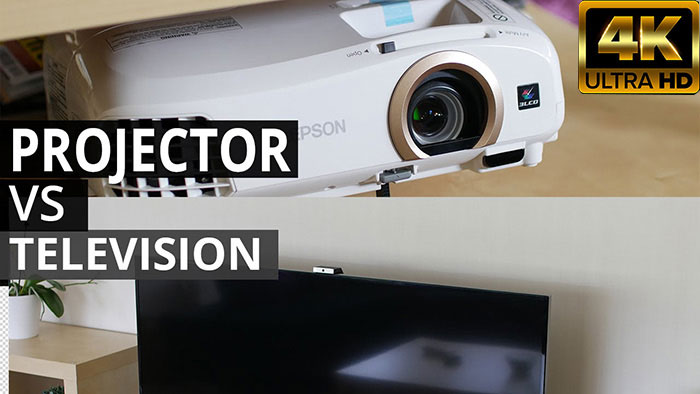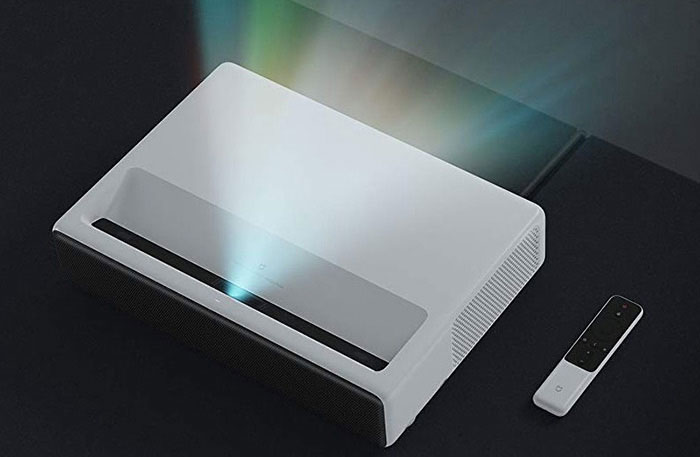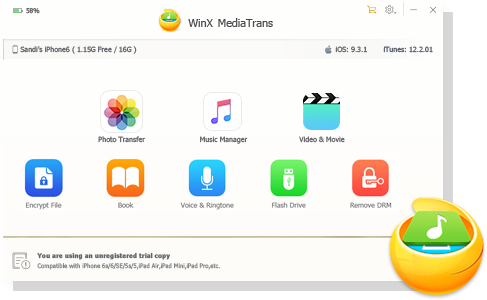4K Projector vs TV: Which One is Better for 4K Gaming/Playback
Should you opt for a 4K projector or 4K TV to elevate your home theater experience? Over the past few years, the price of 4K projector has been becoming affordable for ordinary consumers and 4K smart TV has also improved with much bigger yet brighter screen. The once sizeable gap between 4K projector and TV is now narrowing down. Yet, there are still some differences between 4K projector and TV. This article gets them compared from the aspects of brightness, contrast, installation, sound, immersive experience, eye protection, power consumption, etc. if you happen to be interested in knowing their differences.
Suggested Reading: Best 4K TVs for gaming >>
4K TV vs 4K Projector Comparison
1. Brightness
Brightness matters a lot for 4K projector. That's because 4K projector is strongly affected by the ambient light. The more ambient light in a room, the more brightness is demanded lest your 4K gaming picture or movie image are washed out. In the current market, the 4K laser projector beyond $2000 (e.g., Optoma CinemaX P1 4K Laser Projector) can produce brightness up to 3000 lumens. Unlike 4K projector, TV measures brightness in nits. For instance, $1198 Vizio 65" Class P-Series Quantum X (PX65-G1) delivers detailed highlights at up to 3000 nits of brightness. In terms of brightness, a budget 4K TV looks identical to or even better than 4K projector in gaming/movie picture by naked eyes.
Click to see more 4K projectors for home theater >>

2. Contrast
Contrast is measured by a combination of brightness and darkness. Still take Optoma CinemaX P1 4K Laser Projector for instance. This 4K Ultra HD laser projector can reach up to 1,500,000:1 contrast ratio, yielding brighter whites and deeper black. Comparatively, 4K TV is nowhere near as high contrast as 4K projector, mostly because it isn't deeply affected by ambient light.
3. Sound
4K TV dwarfs projector at this point. Many 4K TVs come with built-in, high-quality speakers and audio processing technology. Some can even compete with dedicated sound systems. Unlike 4K TVs, currently most general-priced 4K projectors lack receiver and built-in speaker. That's why external speakers, subwoofers, and soundbars exist. If what you buy is a 4K TV, you don't have such bother.
4. Installation
It's obvious that 4K TV is far easier than 4K projector in installation You mount it on a wall or place it on a stand, just plug the cables directly into the TV itself, and you're ready to watch, even without consulting any guide book. However, the installation of 4K projector is painful. Many a user complains that the HDMI cables are all the same. It's maddening to distinguish them and put them into the right place, let alone set up your projector screen. It's a bigger challenge than you could imagine to just put your projector screen in correct position without dissymmetry. However, projectors offer portability advantages. You can take them to different locations, indoors or outdoors, for movie nights or presentations.

5. Immersive Experience
4K projector is more suitable for home theater especially when your friends and family members come together to kill time at weekend. You can enjoy a wonderful time to watch a 4K Ultra HD movie together on this giant screen. The immersive experience will be improved to new height if it also features 5.1.2 Dolby Atmos 4K home theater system. 4K TVs, especially those with high refresh rate up to 240Hz, is the ultimate option for gamers to play 4K games thereon, no freezing or lagging issues. Of course, higher configurations comes at the price of higher price.
Related learning: Best monitors for 4K video editing
6. Eye Protection
Which one is better for eyes concerning long-term screen viewing, small-sized TV or big-sized projector? Actually, the answer is the one with bigger screen. 4K projector with bigger display can relax your eyes with larger screen to expand your visual field and less overall brightness. It's more like sitting in an actual movie theater to watch movies, further distance and less footlamberts.
7. Power Consumption
It's wise to know how much energy your 4K TV or projector will use before you pay the bill. Generally, a 54-inch LED TV consumes at least 66 watts per hour and a massive 90-inch model uses 381 watts per hour. The electricity use of 4K projectors with lamps range from 150 watts to 800 watts per hour while lampless 4K laser projectors have power requirements similar to larger 4K LED TVs, roughly 120 watts to 381 watts.

8. Connectivity
The range of connectivity options is an essential aspect of modern home entertainment systems. Both 4K projectors and 4K TVs offer a variety of input and output options, including HDMI, USB, and audio ports. However, 4K TVs might have a slight edge in connectivity due to the availability of additional built-in smart TV features and a more extensive range of apps and services.
9. Cost
The consideration of cost plays an important role in any purchasing decision, whether it is a 4K projector or TV. 4K TVs are available at various price points to cater to different budgets. In general, you can find a high-quality 4K TV that suits your needs without breaking the bank. For example, a new 60inch model can reach approximately $2000. On the other hand, 4K projectors often involve higher initial costs, especially for models with advanced features and high-quality lenses. Additionally, consider the cost of a suitable projection screen or wall paint, which adds to the total investment.
Part 3. 4K TV vs 4K Projector: Pros and Cos
4K TV |
4K Projector |
|
Pros |
|
|
Cons |
|
|
Conclusion
If you tally up the points mentioned above, 4K TV unseats projector without any doubt. In most cases, 4K TV brings more benefits than projector regardless of picture quality, sound quality, installation, power consumption, convenience or price. Certainly, providing you're keen on bigger display for better home theater experience, 4K projector makes the cut and offsets its setup's negative.






















